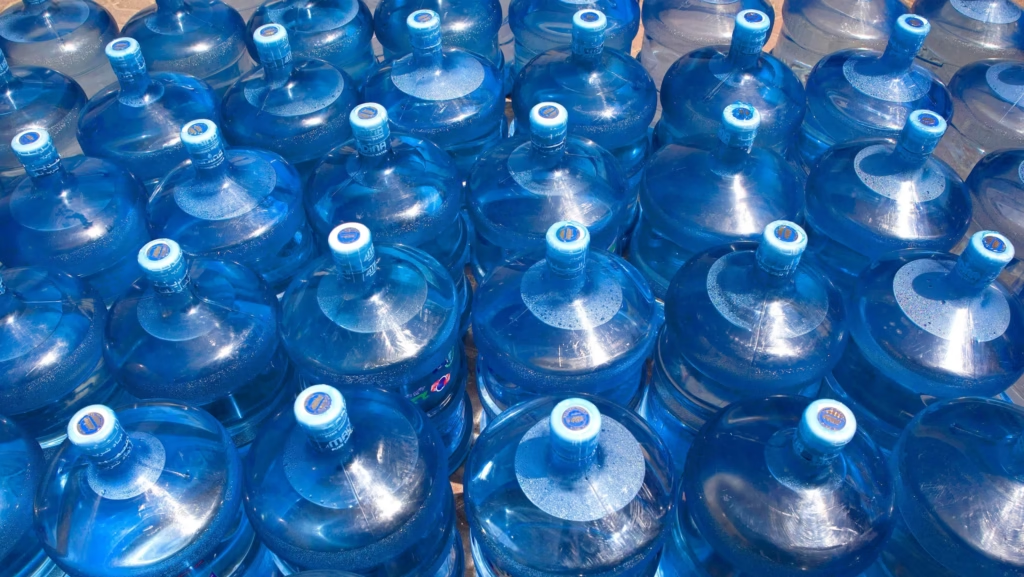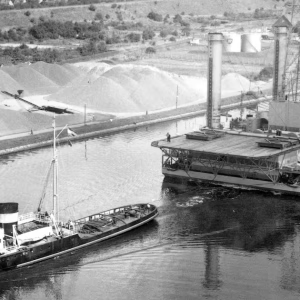UAE bans Iranian bottled water following a tragic incident in Oman that resulted in the deaths of two individuals. The contaminated batch, specifically from the brand “Uranus Star,” prompted authorities in Oman to recall all similar products and raised serious concerns across the Gulf region about the safety of imported bottled water. The UAE authorities acted swiftly, confirming that the country has not issued any import permits for the affected brand and ensuring that it is not available in local markets.
The decision to ban Iranian bottled water reflects the UAE’s proactive approach to protecting public health and preventing similar tragedies from occurring within its borders. Authorities emphasized the importance of vigilance in food and beverage safety, especially in a region that heavily depends on imported consumables. This article explores the incident in detail, the UAE’s response, the implications for regional trade and public safety, and the measures consumers should take to stay safe.
The Deadly Incident in Oman
In late September 2025, a tragic event occurred in Oman that shook the region. An expatriate woman consumed a bottle of “Uranus Star” water and suddenly fell critically ill. Despite medical intervention, she passed away. Just two days later, an Omani man drank from the same brand and also died from poisoning. Subsequent investigations revealed that the bottled water had been deliberately contaminated with amphetamines, chemicals not normally found in drinking water and highly dangerous to human health.

The contamination prompted authorities in Oman to immediately halt all sales of the brand and issue a nationwide recall of Iranian bottled water. The investigation revealed that the contamination was intentional, raising alarms about the safety and traceability of imported food and beverage products in the Gulf region. The incident highlighted the critical importance of strict import controls and monitoring of foreign consumables.
UAE’s Swift Response
Reacting promptly to the news from Oman, UAE authorities issued an official statement confirming that the nation bans Iranian bottled water, including the specific brand involved in the incident. The Ministry of Climate Change and Environment emphasized that no permits had been issued for importing this water, and that none of it has been found in UAE markets.

The ministry stated that it conducts ongoing inspections and checks on all food and beverage imports. Following the Omani incident, these inspections were intensified. Authorities coordinated with local food safety departments in each emirate and thoroughly examined records from all ports and entry points to ensure no contaminated products slipped through. By taking these proactive measures, the UAE has acted to prevent potential health risks before they could affect consumers.
Public Advisory and Consumer Guidance
The UAE government has issued a public advisory urging citizens and residents to remain vigilant. Authorities reminded the public that any Iranian bottled water, especially brands like “Uranus Star,” should not be purchased or consumed. Any existing stock should be reported and safely disposed of.
The ministry reinforced that the UAE’s food safety system is robust and designed to protect consumers. The ministry’s integrated monitoring approach ensures that imported products meet strict safety standards. This includes random testing of food and drink, close coordination with importers, and rigorous approval processes for new products entering the country. The decision to ban Iranian bottled water following the Oman incident exemplifies the proactive steps taken to maintain public health and consumer confidence.
Implications for Regional Trade and Safety
The contamination case has wider implications beyond just Oman and the UAE. Gulf countries heavily rely on imported bottled water due to their limited natural freshwater resources. Contamination incidents pose a severe risk not only to health but also to public trust in food and beverage supply chains.
By announcing that it bans Iranian bottled water, the UAE sets a precedent for swift, precautionary action in protecting public health. This incident highlights the importance of careful screening and monitoring of imported products. For consumers, it emphasizes the need to purchase water and beverages from trusted sources and brands that are known to meet safety regulations.
Authorities across the region are expected to review import policies and implement additional quality control measures. Enhanced monitoring at borders, improved labeling standards, and strict penalties for violations are likely to be introduced to avoid similar incidents in the future.

Consumer Awareness and Best Practices
For consumers, awareness and vigilance are key. Authorities recommend the following steps:
- Always check the origin and certification of bottled water before purchase.
- Be aware of product recalls and follow official guidance immediately.
- Dispose of any suspicious or unverified bottled water products safely.
- Report any unusual health reactions after consuming food or drink to medical authorities.
The incident serves as a stark reminder of the potential risks posed by contaminated consumables. It also underlines the vital role of government agencies in ensuring food and beverage safety through consistent monitoring, rapid response, and public advisories.
Strengthening Food Safety Measures
The UAE’s food safety authorities are continuously working to enhance their systems. Following the recent incident, several measures are being reinforced:
- Stringent Import Verification: Every imported food or beverage product is subject to thorough verification before reaching shelves. Documentation and origin checks are now more stringent.
- Random Laboratory Testing: Samples from imported batches undergo random lab testing to detect harmful chemicals, contaminants, or adulterants.
- Enhanced Coordination: Authorities coordinate with regional counterparts to share information on food safety incidents. This ensures that potential risks are identified early.
- Public Education: Continuous awareness campaigns are conducted to educate residents on safe consumption practices, how to read product labels, and where to find official safety updates.
By implementing these measures, the UAE ensures that incidents like the one in Oman remain isolated and that citizens and residents can trust the quality of the products available to them.

International Implications
The case of contaminated Iranian bottled water also raises questions about international food safety standards. When a contaminated product crosses borders, it can have fatal consequences. Countries importing goods must remain vigilant and implement international best practices, including:
- Ensuring traceability of all imported food products.
- Enforcing strict labeling requirements.
- Conducting independent third-party audits of foreign manufacturers.
- Implementing swift recall systems for unsafe products.
Through its decision to ban Iranian bottled water, the UAE not only protects its citizens but also sets a benchmark for international standards in the region.
Conclusion
UAE bans Iranian bottled water after the deadly contamination incident in Oman to protect public health and prevent similar tragedies. Authorities acted swiftly to confirm that no import permits were issued for the affected products and to ensure that the contaminated brand is not available in local markets.
The incident highlights the importance of regulatory oversight, consumer vigilance, and rapid response to potential food safety threats. UAE authorities continue to monitor food and beverage imports, enforce strict safety protocols, and educate the public on safe consumption practices.
Residents can remain confident in the quality and safety of products available in the UAE while staying informed about official recalls and advisories. The UAE’s decisive action sets a strong example for the Gulf region, demonstrating that public health is the highest priority and that consumer safety is not compromised under any circumstances.
By banning Iranian bottled water, the UAE reinforces its commitment to the wellbeing of every resident and ensures that the tragedy in Oman does not repeat within its borders. Ongoing monitoring, education, and strict regulatory measures are key to maintaining public confidence in the country’s food and beverage supply chain.
Do follow UAE Stories on Instagram
Read Next – Perplexity AI’s $34.5 Billion Bid to Acquire Chrome Browser














